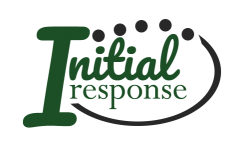
A loan against property is a secured loan that borrowers can get by pledging their properties as collateral to lenders. Now, it is possible to face a sudden expense for which you do not have the money to pay for. This could be anything from starting a business venture or paying for medical treatment. Now, whatever the reason, if you choose not to take out a large chunk of savings to deal with the expense at hand, another way to cover for it is to apply for loan against property.
However, before taking this loan, it is important to focus on the loan’s interest rate. This is because a loan’s interest rate can make a significant difference to the monthly instalments that you need to pay. Each financial institution can charge different interest rates based on its terms and conditions. It also depends on what type of interest rate you choose. There are two different types of interest rates – a floating interest rate and a fixed one.
Many borrowers wonder which one to go for. To understand better, you need to first learn about each one and how they affect the loan against property’s EMIs:
- Floating rate of interest
A floating rate of interest can keep changing throughout the loan tenure. By opting for a floating interest rate, getting an accurate estimate of the loan’s monthly instalments becomes slightly difficult. This is because the rate can keep changing, which also affects the monthly instalments of the loan. If the market rates go down, you will stand to benefit from the situation as your loan’s interest rate can go down too. However, an increase in the rate can result in higher EMIs.
- Fixed rate of interest
Just like the name suggests, a fixed rate of interest does not change and remains the same throughout the entire tenure of your loan. It does not go through any fluctuations irrespective of any market changes. Now, since this interest rate does not change, it is much easier to calculate and plan the monthly instalments of the loan against property. Therefore, setting a repayment plan for a loan that has a fixed interest rate is much easier as compared to a loan with a floating interest rate. However, do keep in mind that financial institutions generally set fixed interest rates to be higher than floating interest rates.
Which one is the better option?
Now this depends on the time that you apply for the loan. If the market rates are expected to rise, it is advisable to opt for a fixed interest rate. However, if you are confident of a drop in the market rates in the near future, you can choose to go for a floating interest rate and benefit from the decrease in the loan’s monthly instalments.
Now that you have learnt about loan against property interest rates, make sure to take an informed decision while applying for the loan. You can use a loan against property EMI calculator to find out whether the loan EMIs are suitable to your budget.












Comments